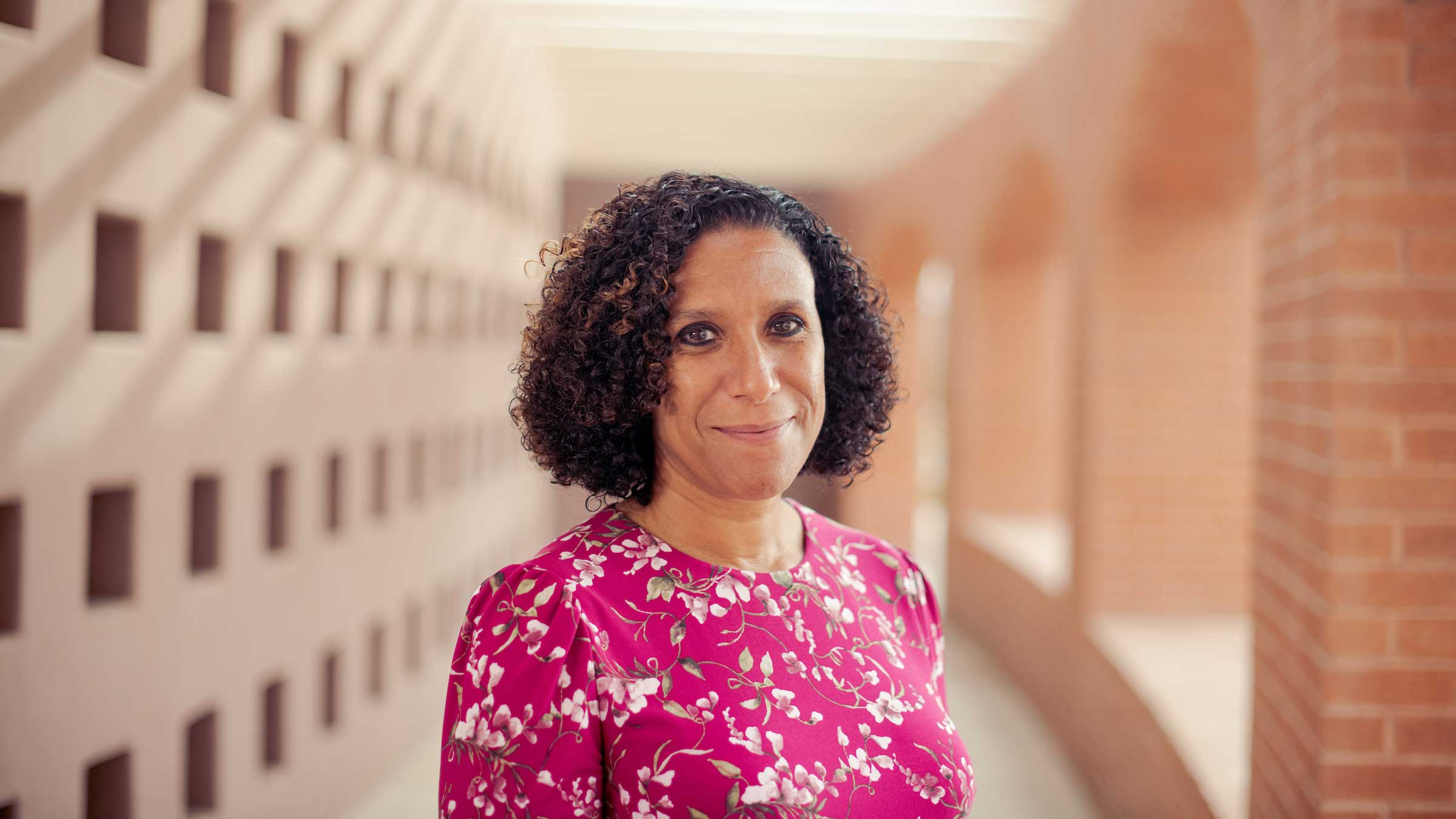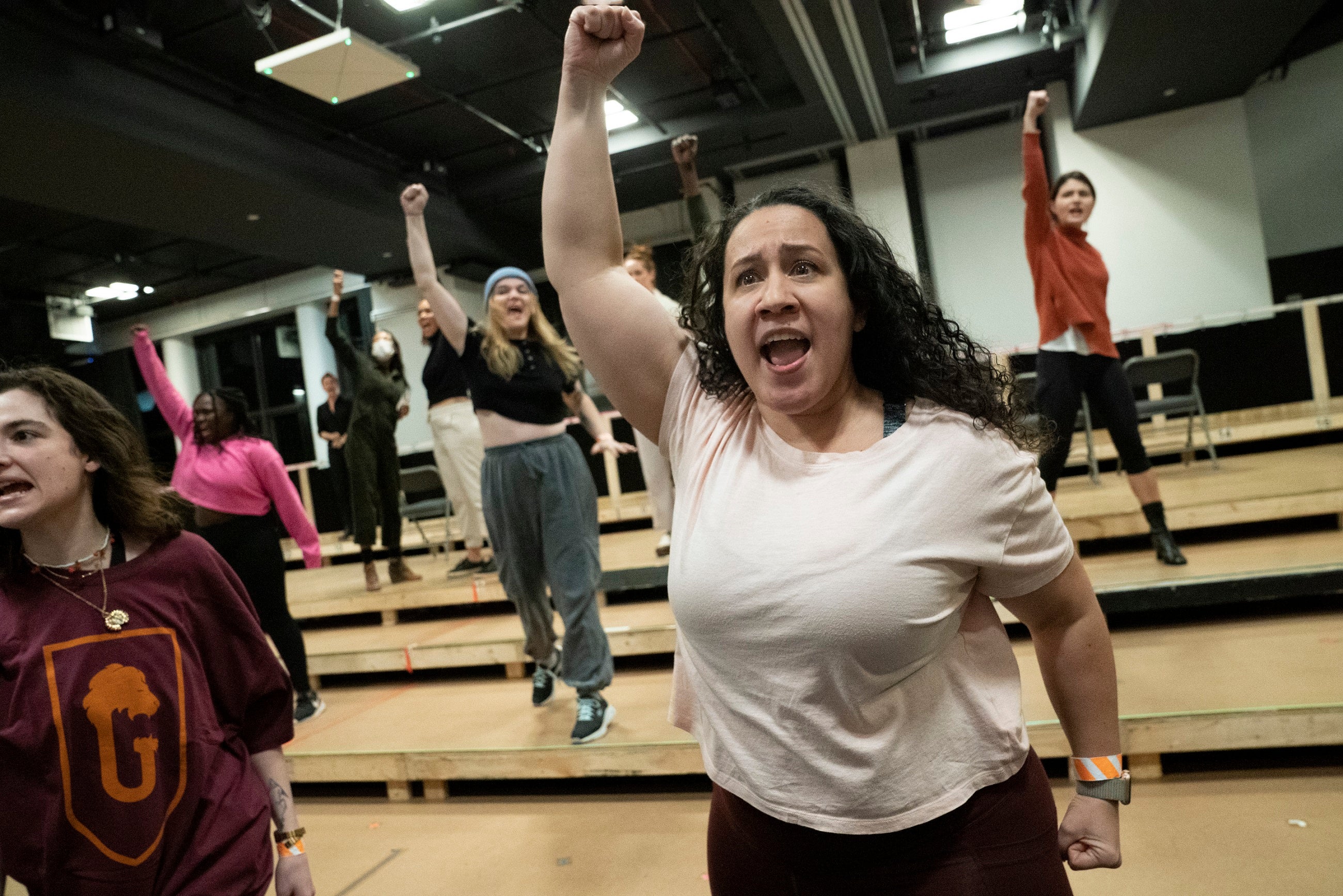Ayanna Thompson is not a fan of musicals.
So you can guess her reaction when the visionaries behind “Suffs,” a musical about the women’s suffrage movement in the early 1900s, asked her to come on as a dramaturg and consultant to help with casting choices.
“I mean, I have zero expertise in musicals, and I made that very clear,” said Thompson, Regents Professor of English at Arizona State University, and the director of the Arizona Center for Medieval and Renaissance Studies. “I was like, ‘Doesn’t this sound like the worst idea ever?’”
But Thompson had become a scholar-in-residence at the Public Shakespeare Initiative in 2020 — “Suffs" is playing at the Public Theater through May 15 — and she was intrigued by what she called the intergenerational and interracial battles of the suffrage movement, and how some of the movement’s goals still resonate today.
As Women’s History Month comes to a close, ASU News spoke with Thompson about “Suffs,” and why, more than 100 years later, women still have societal hurdles to overcome.
ASU Regents Professor Ayanna Thompson
Question: How did your involvement with “Suffs” come about?
Answer: Normally, I’m just working on their Shakespeare productions, but I specialize in race and casting. I’ve had a series of conversations with their senior leadership team about how to think about race and casting, how to be intentional. And so, when the creative team of (creator) Shaina Taub and (director) Lee Silverman brought me in to talk about what a casting approach would look like, I was really excited.
Q: But you don’t like musicals.
A: Yes, I was highly skeptical. But it has such a great arc in the way that it is addressing intergenerational battles and interracial battles, and what gets prioritized and what gets put on the burner when you’re wedded to one principle. I think it’s a pretty complex narrative, and the music is unbelievably beautiful.
Q: What are the intergenerational and interracial battles you’re talking about?
A: The story addresses Alice Paul (a vocal leader of the suffrage movement), who has this sense of self and urgency that she’s going to be the one to win suffrage for women. And, of course, the struggle for suffrage had already been going on for several generations with Susan B. Anthony and Carrie Chapman Catt, who is Susan B. Anthony’s protégé. So it’s the tension between Carrie Kat’s approach, which is slow and incremental, and Alice’s approach, which grows to be kind of like, burn it all down. That’s one part of it.
And then you get Ida B. Wells and Mary Church Terrell, who are two famous Black suffrage fighters. Alice basically tells them, “We’re only going to talk about women. We’re not going to talk about colored women’s rights because we can’t get the Southern vote onboard. So you just have to wait your turn." That’s one of the main songs in the musical. It’s called “Wait My Turn.” And Ida is like, “Why do white women have to say I have to wait my turn? Why can’t it be both? Why can’t we work together?” It’s pretty powerful.
So I think all of those complexities lend themselves to what I’ve called Shakespearean in its structure.
Q: You’ve written extensively on race and performance. Why was it important for you to rethink the casting and have some white male characters portrayed by women and non-binary actors from different races and ethnicities?
A: It wasn’t just my idea. Shaina had said all along that she wanted a cast of women, but then, who counts as a woman? Of course, that recently has been under fire. I want transgender women, I want people who identify as women, but I also want women who think of themselves as non-binary to feel like they have a place in this production. So parts that are male characters would be played by this cast of women. That was fantastic.
The other part I was really interested in helping them be intentional about was if you have this group, and there are Black characters and there are white characters and there are Latino characters and Asian characters, can we make sure that women of color are playing those parts right so that we’re not encouraging a type of Blackface, but to signal that it’s OK for Black women and Latino women and Asian women to play white parts?
The company of "Suffs" in rehearsal for the world premiere musical. Photo by Joan Marcus/Courtesy the Public Theater
Q: What about the suffrage movement still resonates for you today?
A: Alice Paul, at the end of play, she’s like, “Well, we need to fight for the equal rights amendment.” I remember as a child canvassing with my mother to try to get the ERA passed in the 1980s. It still hasn’t passed. So, yeah, a lot of the fights that they were fighting in the 1910s, we’re still fighting a hundred years later.
We’ve made immense progress. But we still haven’t had a female president. We still have hardly any women in the Senate. And look at the fight Judge Ketanji Brown Jackson is facing for the Supreme Court.
Q: Those issues for equality are even more prominent for women of color, right?
A: Very much so. It’s eerie and disturbing and moving to see that we’re still having the same conversations and that it’s still as hard for Native women and Black women and Latinx women. We’ve got a lot of work to do, but I do think this musical gives us a way to start those conversations again. It does offer another door to open to say, “OK, maybe we can cross through it now with these amazing songs ringing in our head.”
Top photo: St. Louis Equal Suffrage League traveling across Missiouri in 1916. Public domain, via Wikimedia Commons
More Arts, humanities and education

ASU professor's project helps students learn complex topics
One of Arizona State University’s top professors is using her signature research project to improve how college students learn science, technology, engineering, math and medicine.Micki Chi, who is a…

Award-winning playwright shares her scriptwriting process with ASU students
Actions speak louder than words. That’s why award-winning playwright Y York is workshopping her latest play, "Becoming Awesome," with actors at Arizona State University this week. “I want…

Exceeding great expectations in downtown Mesa
Anyone visiting downtown Mesa over the past couple of years has a lot to rave about: The bevy of restaurants, unique local shops, entertainment venues and inviting spaces that beg for attention from…




